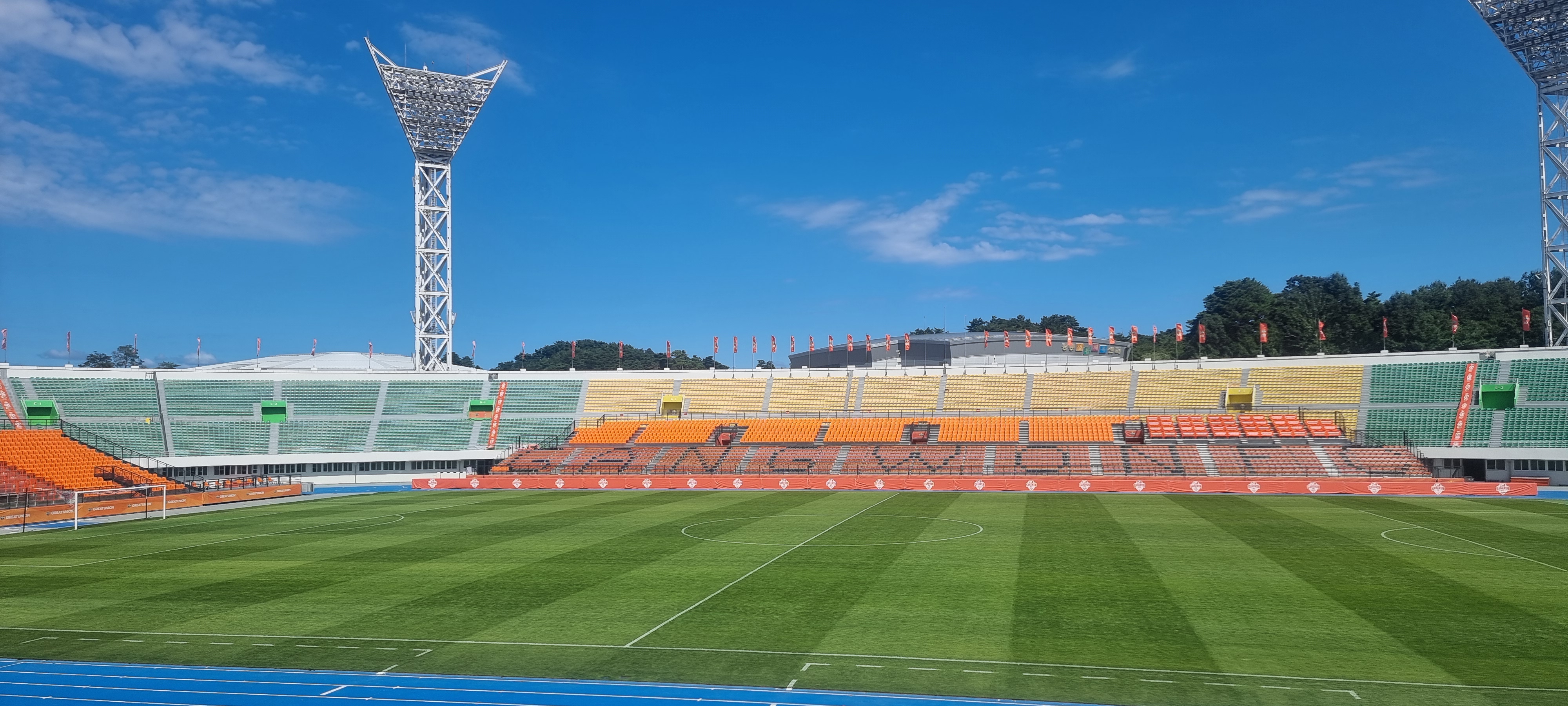K-League 'Silk Road' Gangwon FC turf, the secret was OO!
K-League 'Silk Road' Gangwon FC turf, the secret was OO!
Blog Article

Last month, Son Heung-min, the captain of South Korea's national soccer team, talked about turf after the team's match against Palestine in the third qualifying round of the North and Central American World Cup. Articles have been popping up every day and interest from soccer fans is high. Politicians weighed stadium revenues and maintenance costs, and civil society organizations accused stadium management organizations.
While some stadiums in the K League are being criticized for having terrible turf, there is another stadium that is being praised for having excellent turf. Gangneung Stadium, home of Gangwon FC, is a prime example.
It was recently named the Green Stadium by the Korea Professional Football Association for the second year in a row. It was rated as the best among K-League grounds. The award is given only to the club with the best turf management, and the players have praised it. “It's as soft as silk,” they say.
This is a rave review, as the condition of the turf is a big issue these days. Kim Tae-joo, the head coach of Gangwon FC, is often asked, “How do you maintain it?” “It's a matter of interest,” he says. With his extensive experience in professional soccer clubs, the difference is clear. He believes that the type and quality of grass, whether natural grass, artificial grass, or hybrid grass, has a lot more influence on the condition of the ground than the amount of attention and care given to it.
At the center of this is Choi Kook-heon (53), who is in charge of managing and renting the turf at the Gangneung City Culture and Sports Facilities Division. 카지노사이트 Director Kim Tae-joo introduced Choi, adding that he is a 15-year veteran who can be considered a master of lawn care. In a phone interview with KBS, Mr. Choi explained the A to Z of lawn care and revealed the secrets of silk grass. The following is a one-on-one interview with Mr. Choi.
Q. What is it like to be so interested in turf these days?
A. Nowadays, both players and fans watch overseas leagues through mediation and watch domestic games often and a lot. Naturally, they see not only the players' games, but also the stadium facilities and ground conditions, and I think they realize the condition of the turf. As a result, I think there is a reaction that Gangwon FC's turf is good.
Q. Do you think Gangwon FC pays more attention to turf management in particular?
A. Any club will try to take care of it, but we are different in terms of continuity. I've been doing turf management for 15 years. Gangneung City directly entrusted it to me, so the staff in charge of lawn maintenance, including me, have been doing it continuously, not changing for one or two years. So last season, we know what kind of problems there were in certain parts of the stadium, so we know what we need to pay more attention to this year. We try to know the condition of the stadium so meticulously that we don't know an inch of it.
Q. Do you have a routine for how you manage it?
A. First of all, I do it every day. From the first week of March until the end of the season, I go to the stadium every day to check the grass.
I check it by eye first, then by machine. I check the soil moisture and if I see anything unusual, I do something about it. Just like people get shots, the soil and the grass get shots to prevent diseases. I also give them fertilizer and medicine to strengthen the roots. I mow every other day in the spring and fall because the grass grows at different rates depending on the temperature.
Q. Is the controversy over the turf at the Seoul World Cup Stadium due to the frequent performances at Gangneung Sports Complex?
A. We also perform at Gangneung Sports Complex. We do general rentals, track and field events, and we don't have as many large-scale performances as in Seoul... The key is how well we restore it.... . When we perform, we put down pads to protect the grass, but even with the pads, the grass gets crushed. After the show, after the event, you have to float the crushed grass, which is difficult. Drainage is really important, and if the water pools, it kills the grass, and if it rots from the roots, it's really bad. In the end, the condition of the grass is determined by the restoration.
The grass used in Korean soccer stadiums is Kentucky bluegrass, the same grass variety used in world-class European soccer fields.
If the difference between Europe and Korea is the climate, we should think again about why the Japanese J-League, which has a similar climate, is in better condition than Korea. In the end, the current issue of the K League's deteriorating turf was confirmed to be a problem of management, not a difference in grass variety and climate. Even if you have the most talented players, if they can't perform at 100% due to the condition of the ground, fans' satisfaction is bound to decrease, so attention to and investment in turf management has emerged as an essential strategy for K League clubs.